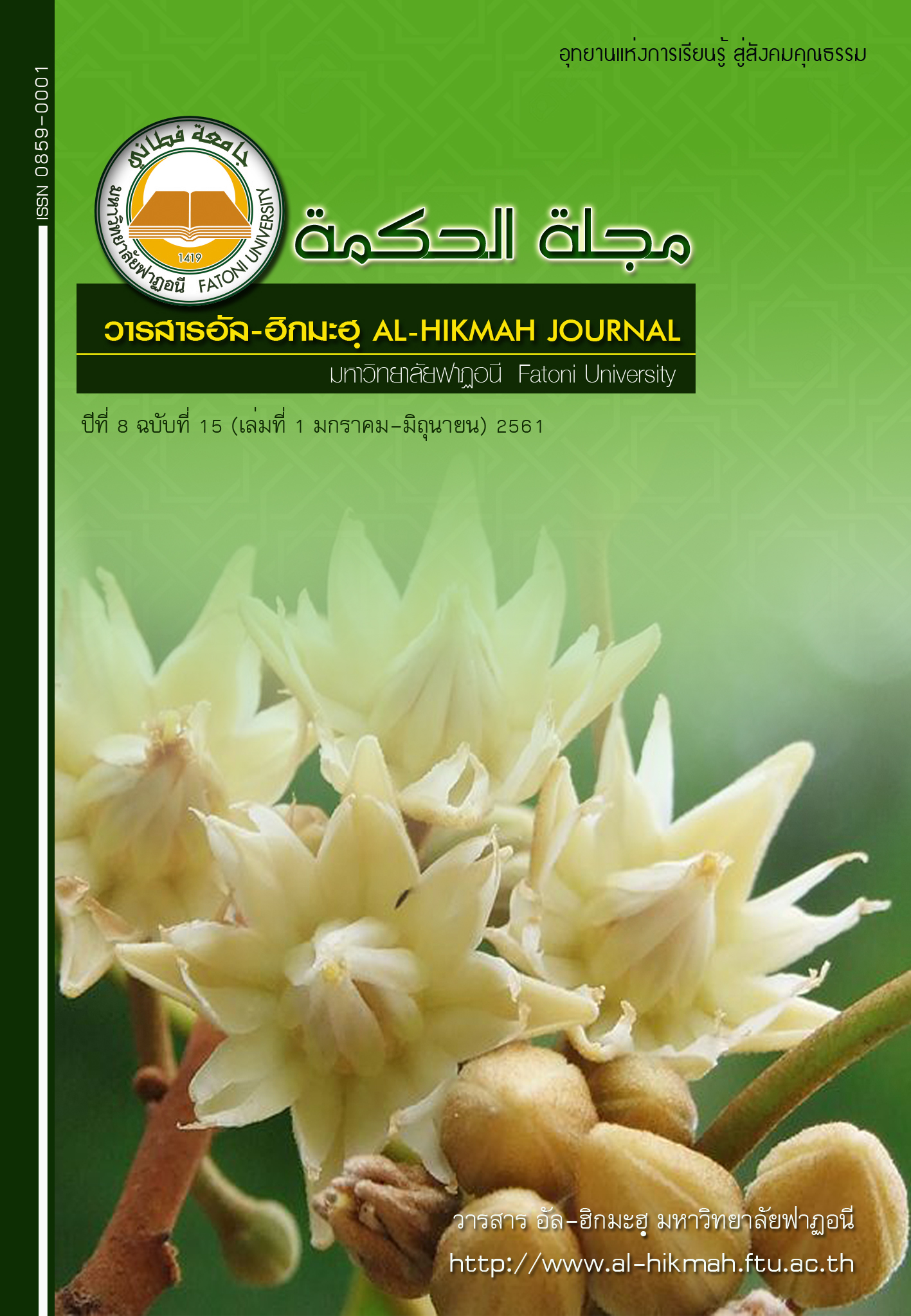Islamic Scholars’ Perspectives on Inheritance of Lineage of a Child from a Father Whose Penis or Testicle Is Amputated
Keywords:
Penis, Testicle, Islamic Lineage InheritanceAbstract
This research article aimed to explore Islamic scholars’ perspectives on conflict management of inheritance of lineage of a marital child from a father whose penis is torn or partly torn or whose testicle is amputated. The study was conducted by collecting the data from the books of the scholars of the four Madhhabs (Schools of thought). The data of this study were analyzed qualitatively in order to lead to conclusions. The results of this study revealed that the scholars have categorized this into three issues. First, a torn testicle; the scholars have three different perspectives on this: i) it is a lawful child, ii) a father (a husband) swears not to accept a child, and iii) this issue should be based on experts’ opinions. Second, a totally torn or partly torn penis, the scholars have three different perspectives on this:i) it should be taken into account when semen come out of the penis. That is to say, when it ejaculates semen, it is considered it is a man’s child. Contrary to this, if semen was not ejaculated, it may not be considered as his child, ii) a father (a husband) swears to accept a child, and iii) this issue should be based on experts’ opinions. Third, torn penis and testicle, the scholars have two different perspectives: i) a father is not allowed to accept a child but need to swear and ii) he is not allowed to accept the child and to swear.
In addition to the above-mentioned, a child who encounters the problems regarding the inheritance of lineage from a father whose penis is partly and totally torn and whose testicle is amputatedstems from Islamic lawful marriage. As far as these are concerned, contemporary scholars maintain that consulting with physicians as well as identifying DNA through forensic science can insist and solve the problems.
References
Al- Fakhri, Aunee. 1999. Mashrui’ah al Istensahk al Bashari fi al Qanooni. Silsilah al Ma - idah al Hurrah 44. Al Istensahk al Bashari al Tib wa al - Ulum al Sha’riah wa al Qanoon. Baitu al Hikmah : Baghdad.
Al – Sarkhasi, Samshuddeen(n.d).al – Mabsoot,Dar al - Ma’rifah, Bairut.
Al – Sawee, Ahmad ,1995. Bulghah al – Salik. Dar al- Kutub al – Ilmiah , Bairut.
Al- Marghinani, Burhanuddin Abi al – Hassan Ali bin Abi Bakr Al- Marghinani,n.d. al – Hidayah sharh Bidayah al – Mubtadi’. Dar al- Quran al – Ulum al - Islamiah, Pakistan.
Al –Shairazi, Abi Ishaq Ibraheem bin Ali bin Usof al – Fairooz al – Abadi al –Shairazi,1995. Al -Muhazzab fi Fiqh al – Imam al – Shafi- ie. Dar al- Kutub al – Ilmiah , Bairut.
Al– sharbini, Shamshuddeen Muhammad bin al – Khateeb al – sharbini,1997.Mugnial – Muhtaj ,Dar al - Ma’rifah , Bairut.
Ibn Qudamah,abi Muhammad abd Lah bin Ahmad bin Mahmood bin Qudamah,1992. al –Mughni Sharh al- Kabir. Dar al – Fikr, Bairut.
Ibn Qasim, Abdul al – Rahman,1994. Al – Mudawwanatul Al –Kubra lil Imam Malik bin Anas, Dar al- Kutub al – Ilmiah , Bairut.
Wizarah al- Adli, 2007. Qanoo al-Ahwa al- Shaksiah,Majmuah al- Tashri-aat al- Kuwaitiah, Wizarah al- Adli .



